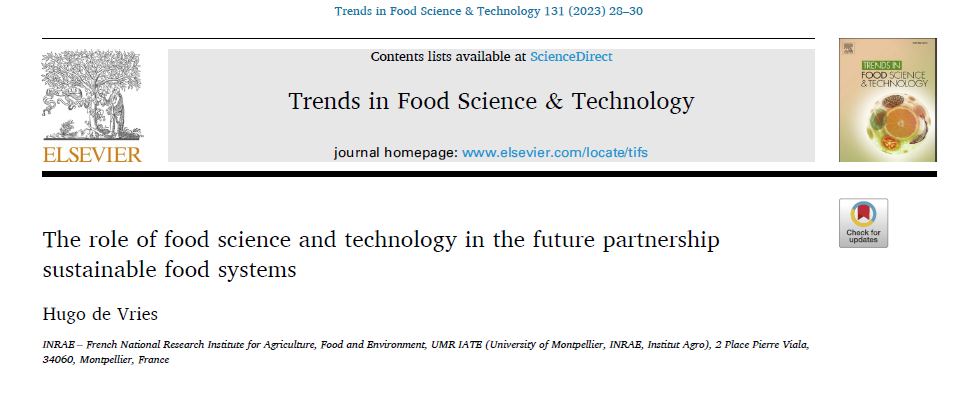The role of food science and technology in Partnership SFS
We summarised for you an article by Hugo de Vries, FOODPathS coordinator, discussing the crucial role of Food Science and Technology (FST) in the food system transformation: enjoy it!

This article reveals that FST experts can improve our understanding of food systems and create knowledge exchange among different disciplines including socio-economic, health, environmental, digital and natural sciences. By following key principles that will address food system activities such as processing, distribution, cooking, consumption, digestion, and recycling, they can help prevent extreme outcomes of these activities for instance overproduction, underproduction, overconsumption, underconsumption, and so on. The key principles that FST should consider are diversity, circularity, adaptability, scalability, robustness, performance, accessibility, fairness, One Health and safety that will lead to the goals of sustainable food systems.
Why is this relevant for FOODPathS?
The partners and networks involved in the project are at the forefront of FST community and provide a wide range of expertise from local, national and international organizations, as well as public and private foundations, research and education networks working on food systems. This multi-stakeholder, interdisciplinary environment contributes to the exchange of expertise in different fields and deepens the knowledge of food systems, which will ultimately help us understand the complexities within food systems and find solutions to facilitate the transition.
For more details, read Hugo de Vries’ full article on the crucial role of food science and technology in shaping sustainable food systems.
Click the button below to read the full article.